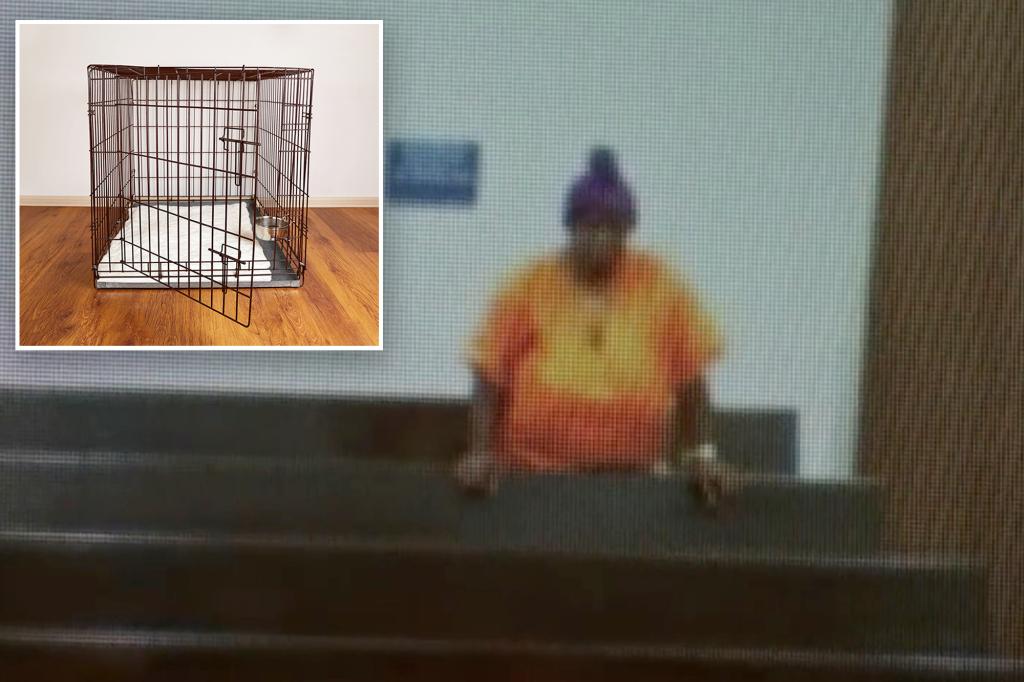This case revolves around Rose Anderson, a single mother residing in Houston, Texas, who is accused of subjecting a 7-year-old relative to a horrifying ordeal of confinement and abuse. According to court documents, Anderson employed extreme measures to discipline the young girl for purported misbehavior at school. These measures allegedly involved restraining the child with duct tape and zip ties, confining her to a dog cage for an extended period, and denying her basic necessities such as food, water, and access to a bathroom. This alleged abuse culminated in the child being forced to urinate on herself while trapped in the cage. The severity of the accusations has sparked outrage and disbelief within the community, with neighbors expressing their astonishment at the alleged actions of a parent towards a child.
The details of the alleged abuse paint a disturbing picture of the child’s experience. Anderson is accused of not only physically restraining the girl but also inflicting physical violence upon her, allegedly kicking her while she was confined. The duration of the confinement remains unclear, but the court documents suggest the child was trapped for several hours, enduring both physical discomfort and emotional distress. The lack of access to basic necessities further exacerbated the child’s suffering, highlighting the callous nature of the alleged abuse. The image of a young child, confined in a cage beneath a Christmas tree, serves as a stark contrast to the festive season and underscores the gravity of the alleged offense.
The legal ramifications of Anderson’s alleged actions are significant. She is currently facing a felony charge of unlawful restraint and is being held at the Harris County Jail on a $10,000 bond. This charge reflects the seriousness of the alleged crime and the potential consequences Anderson could face if convicted. The court proceedings will determine the validity of the accusations and the appropriate legal course of action. The outcome of this case will have lasting implications, not only for Anderson but also for the young victim who endured this traumatic experience.
The community’s reaction to this incident reflects a mixture of shock, disbelief, and concern. Neighbors have expressed their bewilderment at the alleged brutality of the punishment, questioning the rationale behind such extreme measures. The contrast between typical disciplinary methods, such as time-outs or the removal of privileges, and the alleged actions of Anderson underscores the disturbing nature of the case. The community’s response highlights the importance of child welfare and the responsibility of adults to protect children from harm. This incident serves as a reminder of the need for vigilance and intervention to prevent child abuse.
Anderson’s circumstances as a single mother working three jobs add another layer of complexity to the case. While these circumstances do not excuse the alleged abuse, they provide a context for understanding the pressures and challenges she may have been facing. It is important to recognize that economic hardship and the stresses of single parenthood can contribute to parental burnout and potentially influence behavior. However, it is crucial to emphasize that these factors do not justify resorting to abuse or neglect. Support systems and resources are available to assist struggling parents, and seeking help is a crucial step in ensuring the well-being of both parents and children.
This case stands as a stark reminder of the vulnerability of children and the imperative to protect them from harm. The alleged actions of Rose Anderson represent a grave violation of the trust and responsibility that adults hold in caring for children. The legal proceedings will ultimately determine the consequences she faces, but the impact of this incident will undoubtedly be felt by all involved, including the young victim, the community, and the broader conversation surrounding child welfare and parental responsibility. The hope remains that this case will serve as a catalyst for greater awareness and action to prevent future instances of child abuse.

